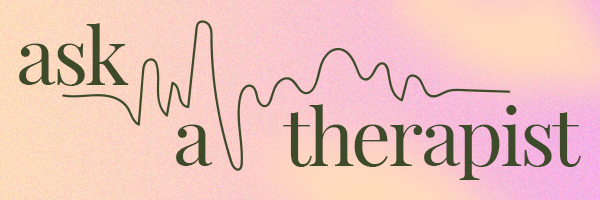Ask A Therapist: My Best Friend Said He Has Feelings For Me. Should I Tell His Girlfriend?
Photographed by Meg O'Donnell
Ever wondered what you'd say to a therapist, given the chance? We asked Dr Sheri Jacobson, a retired psychotherapist with over 17 years of clinical experience for advice on the things we worry about in private.
Question:
Me and my best friend recently admitted to having feelings for one another. We had been flirting for a while even though he has a girlfriend. He refuses to tell his girlfriend and is proceeding to stay with her even though he has feelings for me. Should I tell the girlfriend what’s going on?
Ronny, 22
Answer:
This question is a contentious one and it will probably evoke a lot of strong responses and opinions about what all parties should or shouldn't do. I'm inclined to break down the issue and look at it through the lens of further questions rather than offer explicit advice.
AdvertisementADVERTISEMENT
The questions are focused on your perspective and goals and the perspectives and goals of each party, which branch off in several directions. We could look at short-term and long-term impacts; we could look at desired outcomes based on values; and we could look at it in terms of maximising wellbeing.
So starting with your perspective on your friend’s feelings: Are you okay to have feelings about your friend and not act on them further? Flirtation doesn't necessarily mean a relationship. Or does either one of the parties want to pursue it into something else? Do you feel that it has or will cross the line into romantic involvement? Do you want it to? Or are you happy to keep it in the flirty friend zone?
With this in mind, think about the short-term and long-term impacts: Do you want to pursue this because it feels potentially gratifying in the short term and you're following your impulses? If so, do you see this as a viable relationship in the long term, should the friend split from the girlfriend? Is it something that's important to you to pursue now? Or can you let it run its course with the girlfriend and then maybe pick up a relationship if that's what you want?
When it comes to desired outcomes based on values, you need to decide what is important to you. If, for example, fidelity is something that matters to you, do you want to help instigate a breakup? And beyond that, be with someone who was swayed by someone outside? Will you feel safe or will you feel mistrusting with that person?
AdvertisementADVERTISEMENT
And when it comes to maximising well-being, generally speaking, it's a trade-off again between the instinctual response of 'I want to be with this person' versus maybe the comfort of the knowledge that you can trust that person. Then there are questions around intentions. Is this possibly more than just a physical attraction and emotional connection — could it be to do with a power play? As in: You feel that you have the upper hand over someone and if you do tell them, will it be to assert your dominance over that person and show that you matter more?
There are lots and lots of questions to consider. So try and give this lots of thought and imagine the outcomes of each way you play it, like a game of chess. Crucially, three are playing this chess game so it is rather complicated.
This decision will not only impact you and you are not the only one responsible. So we could also ask the question: Why is the best friend flirting with you when he has a girlfriend? Why doesn't she already know? Maybe she does. So what role and responsibilities has the friend attended to or avoided? And similarly, for the girlfriend, she will have a role as well in some way. It's possible that he's being clandestine and the girlfriend is none the wiser. Whatever her perspective, it’s important to bear in mind that the perspective is there.
As for what is the right thing to do? I think lots of readers will probably have strong views: 'You don't break it up' or 'It's not your issue to tell her, you take care of yourself'. These are value-based opinions of what is the 'right' thing to do but, generally speaking, everyone is a self-propelling agent. We all drive ourselves and we have our own decisions to make. Almost all decisions have some kind of reaction so it's about pre-empting what you're going to do next and making sure, to the extent possible, that you're going to be as comfortable with it as you would like.
The answer, ultimately, is that there is no concrete answer because it has to be reflective of the individual's experience, values and relationships. But I can tell you from clinical work that if there has been a rupture like this to start a relationship, the trust issues that emerge can be hard to repair in the long term.
Want more? Get Refinery29 Australia’s best stories delivered to your inbox each week. Sign up here!
AdvertisementADVERTISEMENT







